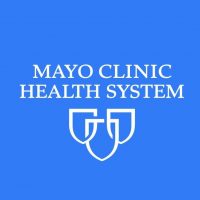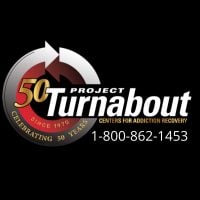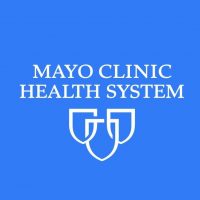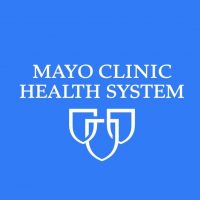New Beginnings - Worthington
Drug Rehab Center in Worthington, Minnesota
New Beginnings - Worthington in Worthington, Minnesota offers a comprehensive range of evidence-based addiction treatment programs and services, including detoxification, residential care, partial hospitalization, and intensive outpatient, to help men and women struggling with addiction and substance abuse.
Multiple patients have reported New Beginnings - Worthington as permanently closed.
Research other rehabs in Worthington, Minnesota, or get help finding an open facility.
About New Beginnings - Worthington in Minnesota
New Beginnings - Worthington serves men and women struggling with addiction and substance abuse in Worthington, Minnesota and the surrounding areas. Located in a safe and supportive community, this facility offers a full spectrum of treatment programs which include detoxification, residential care, partial hospitalization and intensive outpatient. New Beginnings - Worthington's staff of trained professionals provide a comprehensive range of evidence-based services to ensure the best outcomes for their clients. Services include individual and group therapy, art and music therapy, family therapy, substance abuse education, and experiential therapy.
At New Beginnings - Worthington, clients learn how to handle cravings, new coping skills, and relapse prevention techniques. In addition, 12-step support is provided to help guide and support clients as they develop a sustainable recovery lifestyle. Medication management and dual-diagnosis support are also available for those struggling with addiction and mental health disorders. The facility offers a variety of activities to engage and empower clients, such as yoga and mindfulness practice, group outings, and volunteerism in the local community.
New Beginnings - Worthington is accredited by the Commission on Accreditation of Rehabilitation Facilities (CARF), and licensed by the Minnesota Department of Human Services (MDHS). The facility also provides several unique amenities and resources for clients, including a fully-stocked library of health and wellness books, a serene outdoor courtyard, and an onsite gym. By providing one-on-one care, state-of-the-art services, and a variety of resources, New Beginnings - Worthington is dedicated to helping each client achieve long-term sobriety.
Genders
Ages
Modality
Additional
Conditions and Issues Treated
Many people need to recover from substance abuse to live a healthy life. In the end, if you can get through all the steps: detoxifying your body, rehabilitation after some time or when needed (depending on the type), and recovery while also receiving therapy support throughout the process, it can be worth it.
A detoxification center is a common place to start the recovery process from substance abuse. With your body and mind restored, you can continue to heal without the lingering effects of drugs.
Many people who struggle with opioid addiction need to attend specific programs like methadone , Suboxone or Vivitrol clinics.
These types of programs will provide the patient with legal, prescription medications that can help them overcome their cravings for illegal opioids like heroin or fentanyl . If the patient has a chronic condition like Hepatitis C, they must undergo treatment before they can begin taking these medications.
Dual Diagnosis is a specific relationship between two or more disorders that have the same symptoms and can sometimes be treated together. This is used in the treatment planning process when dealing with drug addicts. Dual diagnosis can be viewed as a chronic medical condition that has comorbid psychiatric disorders.
Although addiction and a mental illness may have separate symptoms that are not easy to detect, they often go hand in hand. Many times, drug abuse is a direct result of the mental illness. In other words, treating the addiction will not resolve all of your issues. Unless you also treat the underlying mental illness, you will not be successful in achieving sobriety.
Levels of Care Offered
This center offers a variety of custom treatment tailored to individual recovery. Currently available are Aftercare Support, Drug Rehab, Dual-Diagnosis, Intensive Outpatient, Outpatient, with additional therapies available as listed below.
An intensive outpatient program is usually the first phase of addiction treatment. It provides relief for those who are addicted, but are not ready to commit to an inpatient setting. Typically, the patient lives at home and is able to work or go to school. IOPs consist of a daily 3 to 5-hour program, and there is a required number of hours per week. Most patients go to IOP between 20 and 40 hours per week. The patient attends group counseling and individual therapy throughout the duration of treatment. They also meet daily with their therapist to discuss how it’s going and where they are in the recovery process.
The goal here is to teach patients healthy coping skills, such as stress management and identifying thoughts and behaviors that lead to relapse. The implementation of these skills will be useful as the individual transitions into the next phases of treatment.
An outpatient treatment program is set up to help with alcohol or drug addiction, or a co-occurring disorder. The patient must attend the Minnesota facility for their therapy and other programs but are able to return home each night. The frequency of mandatory attendance decreases after much of New Beginnings - Worthington‘s program is complete.
Aftercare is a term that’s used to refer to any sort of continuing care offered for a drug addict who has voluntarily entered a rehabilitation program. This type of care can be provided in several settings, including outpatient therapy sessions after the addict has completed an inpatient program. There are also 12-step support groups, such as Alcoholics Anonymous, which can provide additional help for addicts trying to stay sober.
Therapies & Programs
Individual Therapy is a critical component of addiction recovery. Therapists work with patients to identify the root of their addiction and figure out how to better handle the issues that led to them using drugs. Individual Therapy is the one-on-one session where people meet with their therapist. Individual therapy provides a safe space for people to open up and discuss personal and sensitive topics which they may not feel comfortable discussing in a group setting.
Family therapy will also help families realize that the addiction is not their fault. For many years, people blamed themselves for an addict’s behavior and felt that they had done something wrong. This is not the case. Addiction is a disease, and it can strike anyone, even if their life seems fine from the outside. It can bring a lot of shame to a family when they have an addict in their midst, but if everyone is open and honest with each other, then they can help everyone stay in recovery.
Group Therapy is utilized by drug treatment centers like New Beginnings - Worthington to provide the recovering drug addict with a platform to talk about their feelings and experiences. It also provides for an opportunity to learn from other addicts who have successfully overcome their addiction.
Group Therapy is employed in lectures, seminars, or discussion groups (the latter two are typically conducted as “therapy groups”). It is recommended that all group members be recovering addicts for this type of therapy to work (though it does not exclude others with lived experience).
Cognitive behavioral therapy is also a popular service for individuals living with addiction. This type of supportive treatment uses both one-on-one counseling and group sessions to teach addicts how to identify thoughts, behaviors and emotions that might increase their risk of relapse.
These professionals can help addicts develop coping skills for managing stress, improving self-esteem and overcoming triggers. They might also use behavioral therapy to help addicts learn how to avoid cravings and warning signs that could lead them back into addiction.
Therapy can be used as a step-down from inpatient treatment or as the primary method of overcoming an addiction. No matter which option is best for the addict, they will teach important emotional coping techniques, which can make it easier for addicts to get through the tough days.
Training in improved life skills helps those recovering from addiction feel more capable of self-care. New Beginnings - Worthington are daily skills that give the person the tools they need to survive.
The therapy covers practical activities like cooking, job hunting, social interaction, and money management, helping to fill in the knowledge gaps caused by addiction.
These life skills help the person self-manage their recovery and stay on track. It also reduces relapse risk as they gain confidence in their day-to-day abilities.
Nutrition therapy has been used to help drug addicts for decades. Many early reports on addiction treatment indicate that some patients recovered from the “satisfying power of food”. For years, this phenomenon has been utilized as a treatment modality in eating disorders for adults, adolescents, and children. Specific nutrients have been identified that influence neurotransmitters associated with reward pathways of the brain.
Studies have shown that carbohydrate loading with complex carbohydrates to elevate serotonin levels was effective in treating bulimia nervosa. This approach prompted researchers to explore the use of this type of nutritional intervention in other disorders.
Nicotine replacement therapy treats nicotine addiction using external sources of nicotine, such as patches or gum to substitute for nicotine. This allows people trying to quit smoking to get their desired dose of nicotine without actually having to smoke cigarettes. The idea behind NRT is that by providing smokers with nicotine in forms that are not cigarettes, they may be more likely to quit smoking.
NRT has been available for many years now, and there is a wealth of evidence that shows that it helps people trying to quit smoking. There are several different types of NRT devices on the market now. Patients interested in quitting smoking should talk to their doctors about the best kind of NRT for them.
Patient Experience
Creative Arts
This type of therapy can help addicts manage anxiety, stress, and other negative feelings. It typically involves the use of art materials to express thoughts and emotions that might otherwise be difficult for an addict to discuss with another person.
During these types of sessions at New Beginnings - Worthington, addicts will typically work with a therapist or support group leader to create pieces of art. For instance, they might draw pictures, paint, sculpt, and so on. During the process, addicts are encouraged to talk about what led them to substance abuse in the first place.
Experiential Therapy at New Beginnings - Worthington
Experiential therapy is another form of treatment that helps addicts overcome their addiction. This type of service typically involves hands-on activities with the focus on physical experiences instead of emotions or beliefs.
Some examples include art therapy, equine therapy and music therapy. Each of these forms of experiential therapy can provide unique ways for addicts to channel their feelings and work through their demons. This type of therapy also allows addicts to develop meaningful emotional connections with others, which can prevent them from resorting to relapse as a coping mechanism.
Payment Options Accepted
For specific insurance or payment methods please contact us.
Is your insurance accepted?
Ask an expert, call (888) 674-0062
New Beginnings Minnesota Associated Centers
Discover treatment facilities under the same provider.
- New Beginnings - Elk River in Elk River, MN
- New Beginnings - Minnetonka in Minnetonka, MN
- New Beginnings - Olivia in Olivia, MN
- New Beginnings - Minnetonka in Minnetonka, MN
- New Beginnings - Evening Outpatient in Elk River, MN
Learn More About New Beginnings Minnesota Centers
Additional Details
Specifics, location, and helpful extra information.
Worthington, Minnesota 56187 Phone Number(320) 693-2461 Meta DetailsUpdated November 25, 2023
Staff Verified
New Beginnings - Worthington Patient Reviews
There are no reviews yet. Be the first one to write one.
Worthington, Minnesota Addiction Information
Minnesota is fighting an opioid epidemic that is leaving hundreds of its residents dead each year. Both prescription opioids and illicit opioids are widely abused in the Land of 10,000 Lakes. Heroin continues to be one of the most commonly abused drugs in the state, if not the most common illicit drug. Over 10% of all treatment admissions in Minnesota list heroin as their drug of choice.
An estimated 1,000 people aged 12 or older in Worthington had used an illicit drug in the past month. 41% of addicts are between the ages of 18 and 25. There are an increase of 33% in overdose deaths from 2007 to 2016. 22% of the population struggling with alcoholism. Some of the most common types of treatment include inpatient treatment, outpatient treatment, and detoxification.
Treatment in Nearby Cities
- Northfield, MN (133.2 mi.)
- Pine City, MN (198.0 mi.)
- Cottage Grove, MN (154.5 mi.)
- Kasson, MN (144.2 mi.)
- Litchfield, MN (114.9 mi.)
Centers near New Beginnings - Worthington
The facility name, logo and brand are the property and registered trademarks of New Beginnings - Worthington, and are being used for identification and informational purposes only. Use of these names, logos and brands shall not imply endorsement. RehabNow.org is not affiliated with or sponsored by New Beginnings - Worthington.






